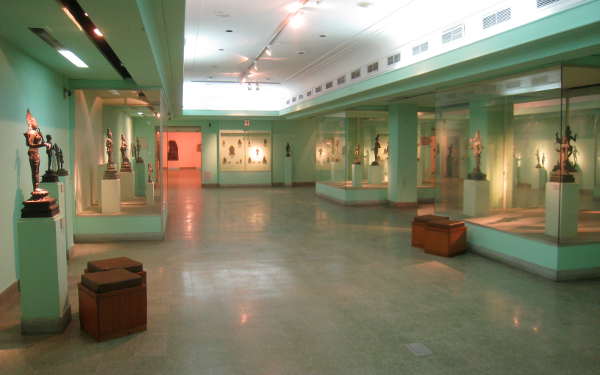On 3 February, 2015, a bench of the Supreme Court comprising of Justice T.S. Thakur and Justice Adarsh Kumar Goel held that preservation of rich heritage and culture of the country is a constitutional mandate. Hearing a writ petition filed by Subhas Datta as a public interest litigation under Article 32 of the Constitution, the Supreme Court took note of the submissions on behalf of the concerned agencies, which are running and managing museums, to the effect that the security and maintenance of historic artefacts requires serious and continuous efforts by technically trained persons. The court also noted the challenges pointed out in this regard, such as space constraints, manpower shortage and lack of other resources, that need to be looked into by the Ministry of Culture and other concerned authorities, and also the appropriate monitoring mechanism that needs to be put in place. The court also took note of the fact that requisite funds have to be allocated so as to ensure safe keeping of the valuable artefacts.

The above petition had been filed in the year 2004 on the issue of protection of historical objects preserved at different places in the country particularly in various museums. It sought a direction for adequate security arrangements and for proper investigation into the incidents of theft and damage to several historical objects and also for making an inventory of available articles for future. In fact, the petition was inspired mainly by the theft of historical artefacts of Gurudev Rabindra Nath Tagore, kept in the museum of Viswabharati University at Santiniketan in West Bengal. The petition also highlighted the incidents of stealing of golden coins from the Asiatic Society of Calcutta in the year 1990, theft from the Nandan Art Gallery of Viswabharati University in the year 1984, and thefts in Victoria Memorial at Calcutta.
The petitioner had submitted that under Article 49 of the Constitution, the State is under obligation to protect every monument, place or object of artistic or historic interest declared to be of national importance from spoilation, disfigurement, destruction, removal, disposal or export, as the case may be. Moreover, under Article 51A(f) of the Constitution, there is fundamental duty to value and preserve the rich heritage of our composite culture. These provisions of the Constitution are reproduced as under:
“49. Protection of monuments and places and objects of national importance.—It shall be the obligation of the State to protect every monument or place or object of artistic or historic interest, declared by or under law made by Parliament to be of national importance, from spoliation, disfigurement, destruction, removal, disposal or export, as the case may be.”
“51-A. Fundamental duties.—It shall be the duty of every citizen of India—
*** ***
(f) to value and preserve the rich heritage of our composite culture;”
The petitioner had further submitted that there should be a proper inventory of all historical objects preserved at different centres and such inventory should be kept at a central place under the Government of India. There should be periodical stock taking by an independent agency. Ancient Monuments Preservation Act, 1904 requires proper preservation of objects of archaeological, historical, or artistic interest.
The Supreme Court had heard the said petition for last about 10 years and had passed various orders from time to time. However, the petitioner submitted that in spite of various directions of the Supreme Court, the situation is still not satisfactory, and that neither the stolen articles had been recovered nor adequate security measures were fully adopted.
On behalf of the respondents it was accepted that the concern of the petitioner is genuine and there is every need to review the security measures and to update the inventory. They assured the Court that the concern will be addressed and necessary steps in the matter will be taken. In view of the assurance given by the respondents, the Supreme Court declined to give any specific directions at this stage. However, the Court expected that the Secretary, Ministry of Culture, Government of India, will review the matter and take such necessary steps as may be identified within one month from the date of receipt of a copy of the order. It was also expected that thereafter, review meetings would be held at least once in every six months to consider further course of action.
Full order of the Supreme Court can be seen here.

